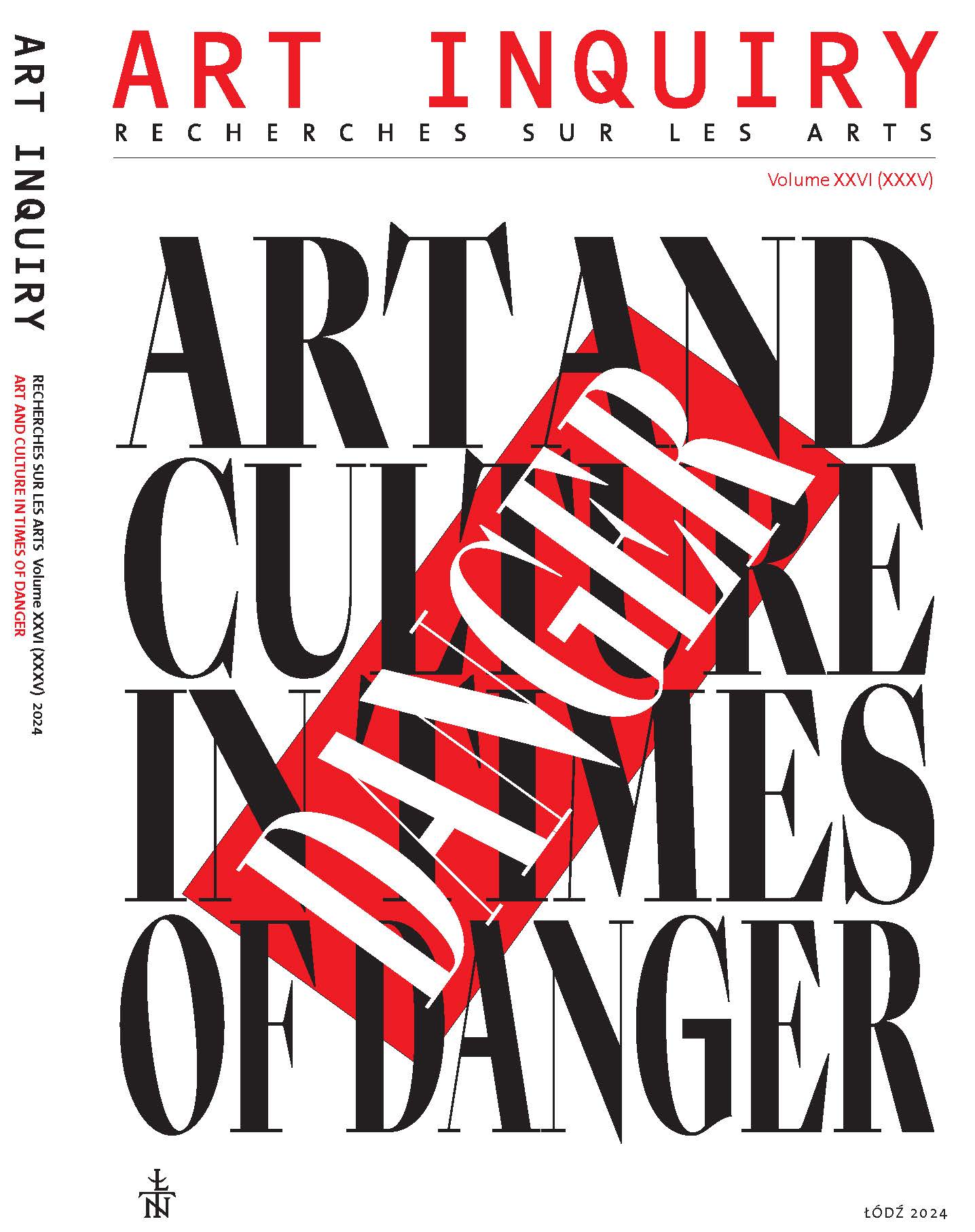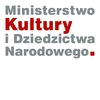Festiwal sztuki rdzennej ludności i (od)łączenie się z współczesnymi rzeczywistościami społeczno- kulturowymi w południowo-wschodniej Nigerii
DOI:
https://doi.org/10.26485/AI/2024/26/15Słowa kluczowe:
Teoria hybrydowości, Festiwal Onwa-Oru, Nigeria, Kultura, Sztuka, Współczesne realiaAbstrakt
Festiwal jest punktem kulminacyjnym rdzennych instytucji kulturalnych w Afryce oraz ekspresji artystycznej przekazanej mieszkańcom przez ich przodków i kultywowanych przez pokolenia. Artykuł poprzez przeprowadzone badania, odnosi się do niemniejszej problematyki. Kilka społeczności rdzennych w południowo-wschodniej Nigerii żyje pod silną presją niebezpiecznych wydarzeń: degradacji środowiska, powstań, wykluczenia z głównego nurtu polityki i dystrybucji zasobów; kryzysu moralnego i erozji kulturowych i tożsamościowych elementów, takich jak język. Jeśli festiwale są utrzymywane w celu odniesienia się do realiów czasów pierwotnych, gdzie oraz w jaki sposób pojawiające się nowe realia znajdują wyraz w tych festiwalach? Opierając się na teorii hybrydowości kulturowej i wykorzystując obserwację uczestniczącą, analizę studium przypadku oraz dyskusję w grupie fokusowej. Badanie prezentuje zmiany kulturowe i artystyczne na Festiwalu Onwa-Oru ludu Uratta w południowo-wschodniej Nigerii. Ma ono na celu zbadanie zakresu i wpływu zaniku kontekstu do działań performatywnych na przyszłość rdzennych ludów. Badanymi komponentami kultury są rdzenne tańce i występy maskaradowe, podczas gdy główne strefy oceny socjologicznej to środowisko, media, moralność i pedagogika. Badacze zauważają, że to oderwanie od współczesnych realiów dało przestrzeń negatywnym ikonoklazmom kulturalnej i artystycznej werwy festiwalu. Podsumowując, nowe kreatywne ponowne połączenie festiwalu i jego sztuk z panującymi realiami mogłoby pomóc rdzennym ludom poruszać się po życiu w niebezpiecznych czasach. Zgodnie z powyższym mottem, sugeruje ono nowe sposoby, dzięki którym ludność miejscowa mogłaby postrzegać swoją sztukę w nowy sposób.
Bibliografia
Abakporo, Princewill Chukwuma & Ohenhen, Stanley Timeyin. (2024). Indigenous Environmentalism through Dance: The Ohaji-Egbema Experiment. Rupkatha Journal on Interdisciplinary Studies in Humanities, Vol. 16, No. 1, pp. 1-18. https://doi.org/10.21659/rupkatha.v16n1.06
Abakporo, Princewill Chukwuma & Stanley Timeyin Ohenhen. (2022). Complexities in Childhood Discourses on the ‘Forced-to Ripen’ Nigerian Child: Pespectives in Drama and Socio-Psychology.’ In Social Pedagogy for Social Inclusion and Children’s Rights Discourses. Anna Odrowąż-Coates (Ed.). UNESCO/Janusz Korczak Chair’s Book Series. Warsaw, Poland: Maria Grzegorzewska University Press, 2022, pp. 43-53.
Abakporo, Princewill Chukwuma. (2021). Nigerian Drama and the Politics of Incarceration. In: Education and the Challenges of the Multicultural World. Ewa Dabrowa & Anna Odrowąż-Coates (Eds.) UNESCO Commissioned Book Project. Poland: Maria Grzegorzewska University Press, pp. 159-172.
Adeoti, Gbemisola. (2014). The Dance Art in a Forest of a Thousand Troubles. Dance Journal of Nigeria. Vol. 1(1), pp. 1-23.
Abbe, E. Josephine. (2015). A Critique of Chris Ugolo’s Theory on Inventing a National Choreographic Tradition for Nigeria. In: Dance Journal of Nigeria. Vol. 2 (2), pp. 12-20.
Ackermann, Andreas. (2012). Cultural Hybridity: Between Metaphor and Empiricism. In: Conceptualizing Cultural Hybridization: A Transdisciplinary Approach. Philipp Wolfgang Stockhammer (Ed). Springer Heidelberg Dordrecht, pp. 5-23.
Anaeto, Solomon; Olufemi, Onabanjo & James, Osifeso. (2012). Models and Theories of Communication. (4th Ed.). USA: African Renaissance Books Inc.
Apata Esther. (2013). Developing a Sustainable Dance Industry in an Economically Depressed Country: Nigeria in Focus. In Quality Assurance: Theatre, Media and the Creative Enterprises. Gowon Ama Doki and Ted Anyebe (Eds.). SONTA Benue: Trinity Media, pp. 257-261.
Awuawuer, J. Tijime. (2015). Ivom Dance Festival and the Tiv Worldview. In Dance Journal of Nigeria. Vol. 2 (2), pp. 51-67.
Bauman, Zygmunt. (2014). State of Crisis. Cambridge UK: Polity Press.
Bauman, Zygmunt. (2007). Liquid Times. Cambridge UK: Polity Press.
Bauman, Zygmunt. (2005). Liquid Life. Cambridge UK: Polity Press.
Bauman, Zygmunt. (2000). Liquid Modernity. Cambridge UK: Polity Press.
Burnett, David. (1988). Unearthly Powers: A Christian Perspective on Primal Folk Religion. Eastbourne: Marc.
Childs, Erica Chito. (2018). Critical Mixed Race in Global Perspective: An Introduction. In: Journal of Intercultural Studies, 39 (4), pp. 379-381
Chinyowa, Kennedy. (2009). Emerging paradigms for applied drama and Theatre Practice in African Contexts. In: Research in Drama Education: The Journal of Applied Theatre and Performance. Vol. 14, pp. 329-346.
Ele, Christian. (2018). Human Rights Violations in African Traditional Religion: The Masquerade Example. In: American International Journal of Contemporary Research. Vol. 8(4), pp. 86-91.
Etuk, Udo. (2002). Religion and Cultural Identity. Ibadan: Hope Publications.
Fernandez-Armesto, Fellipe. (2019). Out of Our Minds: What We Think and How We Came to Think It. London: One World.
Folarin, B. (1998). Theories of Mass Communication: An Introductory Text. Ibadan: Stirling- Horden Publishers.
Giddens, Anthony. (2000). Runaway World: How Globalization is Re-shaping our Lives. New York: Routledge.
Giddens, Anthony. (1991). Modernity and Self Identity: Self and Society in the Late Modern Age. Stanford: Stanford University Press.
Gorer, Geoffey. (1962). Africa Dances. W.W. Norton & Company Inc.
Idowu, K. Olatunji. & Raji, M. Elizabeth. (2017). The Significance of Inter-Relationship of Textile, Fashion, and Costume Design in View of Nollywood Productions in Nigeria. In: JOTAMS: A Journal of Theatre and Media Studies. Vol 2, (2), pp. 1-13.
Ikeke, O. Mark & Ogelenya Grace. (2016). Western Influence and African Values: An Ethical Evaluation. In: Abraka Humanities Review: A Journal of the Faculty of Arts Delta State University, Abraka. Vol. 7 (1), pp. 125-134.
Isidienu, Cordelia Ifeyinwa. (2017). Managing Change in Child Upbringing in a Globalized World: The Igbo Cultural Heritage Experience. In: The Creative Artist: A Journal of Theatre and Media Studies. Vol. 13 (2), pp. 229-241.
Isrow, Zachary. (2017). Defining Art and its Future. In: Journal of Arts and Humanities. Vol. 6 (6). DOI:10.18533/journal.v6i6.1207.
Iyamah, C. Yankson. (2013). Theatre Arts: A Resource for National Development. In: The Crab: Journal of Theatre and Media Studies. No. 8, pp. 133-144.
Iyamah, C. Yankson. (2014). Social Reconstruction in Nigeria through the Performing Art. In: Abraka Humanities Review: A Journal of the Faculty of Arts Delta State University, Abraka. Vol. 6 (3), pp. 103-108.
Keyes, Ralph. (2004). The Post-Truth Era: Dishonesty and Deception in Contemporary Life. USA: St. Martin’s Press.
Kirsch, Scott. (1995). The Incredible Shrinking World? Technology and the Production of Space. Environment and Planning Development: Society and Space, 13 (5), pp. 529-555.
Mabweazara Hayes. Present day African Theatre Forms have filtered through from the Past. African Postcolonial Literature in English. http:www.postcolonialweb.org/Africa.mabweazaral.html (accessed: 13.01.2017).
Marotta, Vince. (2020). Cultural Hybridity. In: The Blackwell Encyclopedia of Sociology. George Ritzer and Chris Rojek (Eds.). John Wiley and Sons Ltd.
Mattiazzi, Alicia & Martin, Vila-petroff. (2021). Is Bauman’s “liquid modernity” influencing the way we are doing science? In: Journal of General Physiology, 153(5), https://doi.org/ 10.1085/Jgp.202012803 (accessed: 01.04.2024).
Media Theory. (2023) Cultural Hybridity Intersecting Blended Narratives of Culture. Cultural Hybridity | Intersecting Blended Narratives of Culture (mediatheory.net) (accessed: 01.04.2024).
Montuori, Alfonso and Gabrielle Donnelly. (2019). Creativity and Leadership in Postnormal Times. In The Postnormal Times Reader. Ziauddin Sardar (Ed.). International Institute of Islamic Thought, pp. 355-376.
Nwabueze, Emeka. (2011). Visions and Revisions: Selected Discourses on Literary Criticism. (2nd Ed.) Enugu: ABIC Books.
Nwankwo, Ignatius Uche. (2015). Governance and Associated Social Roles of Masquerades among The Igbo of Southeast Nigeria in an Era of Globalization: A Critical Appraisal. In Mgbakoigba: Journal of African Studies. Vol. (4), pp. 1-12.
Nwaru, Chris. (2017). The Diachronic Development of Traditional Dance in Nigeria JOTAMS: A Journal of Theatre and Media Studies. 2(2), pp. 38-49.
Nwaru, Christian & Princewill C. Abakporo. (2022). Securing the Future of Indigenous Dance in Nigeria. In: Creative Artist: Journal of Theatre and Media Studies. Vol. 16 (2), pp. 84-98.
Obi, Z. (2009). Parenting for a Purpose: Skills for Educating Children of Today. Enugu: New Generation Books.
Okeoma, Chidiebube. (2018). Violence!!!!! Masquerade kill two persons at festival. Punch Online. Two killed as masquerader, team attack festival - Punch Newspapers (punchng.com) (accessed: 12.03.2024).
Olokodana, Oluwatoyin & Steve James Itsewah. (2015). Nigerian Dance in the Face of Modernity. In Dance Journal of Nigeria. Vol 2 (2), pp. 82-91.
Orji, A. Emmanuel. (2008). Onwaoru Uratta. Port Harcourt: Juriscope Press.
Pawłowska, Aneta; Krejtz, Izabela & Wisiecka, Katarzyna. (2023). Exhibition of Works by Grzegorz Sztabiński at the University of Łódź, Entitled Hommage à Grzegorz Sztabiński – "Continued...", as a Contribution to the Analysis of Ways of Looking at a Work of Art. “Art Inquiry. Recherches sur les arts” vol. XXV, pp. 207-227.
Sardar, Ziauddin. (2020). The smog of ignorance: Knowledge and wisdom in postnormal times. Futures, (120), 2020: 102554.
Sardar, Ziauddin. (2022). ‘Postnormal Artefacts’ available at https://ziauddinsardar.com/articles/postnormal-artefacts (accessed: 4.03.2024).
Sardar, Ziauddin. (2021). On the Nature of Time in Postnormal Times.’ In: Futures. Vol. 25 (4), pp. 17-30. https://doi.org/10.1016/j.futures.2020.102554.
Sardar, Ziauddin. (2010). Welcome to postnormal times In: Futures, vol. 42 (5), pp. 435-444.
Tusa, John. (2000). Art Matters: Reflecting on Culture. United Kingdom: Methuen.
Uzelac, Aleksandra & Biserka, Cvjerticanin. (Eds) (2008). Digital Culture: The Changing Dynamics. Zagreb: Institute for International Relations.
Wanyama, N. Mellitus & Issac Waswa, Shitubi. (2012). Emergent Issues Regarding ‘African Traditional Dance’ and ‘African Contemporary Dance: A Discourse on the Current Theory and Practice of ‘African Dance’ Criticism and Choreography. In: International Journal of Current Research Vol. 4 (3), pp. 225-228.
Pobrania
Opublikowane
Numer
Dział
Licencja
Prawa autorskie (c) 2024 Łódzkie Towarzystwo Naukowe

Utwór dostępny jest na licencji Creative Commons Uznanie autorstwa 4.0 Międzynarodowe.





